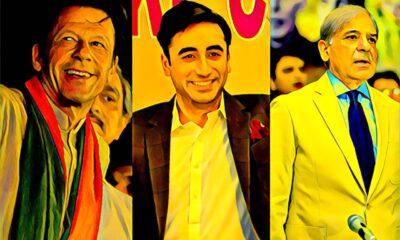General
Public, traders take to streets against sky-high electricity bills
Thousands of traders and businesses across the country closed their shops on Saturday to protest against soaring energy and fuel bills.
ہم امیروں پر ٹیکس لگانے اور غریبوں کو ریلیف دینے کا مطالبہ کر رہے ہیں۔
— Muhammad Shoaib Shaheen (@advshoaib66) September 2, 2023
مگر حکومت امیروں کو سبسڈی دینے کے لیے غریبوں پر ٹیکس لگا رہی ہے۔
سربراہ آئی ایم ایف@IMFNews
#ملک_گیرعوامی_ہڑتال pic.twitter.com/QtsF9q4N46
- Thousands of traders and businesses across the country closed their shops on Saturday to protest against soaring energy and fuel bills.
- The recent hike in electricity bills has further frustrated the consumers and traders who are already heavily burdened by the soaring inflation in the country.
- Caretaker Prime Minister Anwaar-ul-Haq Kakar has ruled out any possibility of immediate relief, saying there is no option for consumers but to pay their bills.
- The strike has caused widespread disruption to businesses and transport, and has also led to protests in several cities.
In Karachi, citizens blocked the flow of traffic on the National Highway to protest against inflation. In Sargodha, traders split into two factions on the JI’s call for a shutterdown strike. In Faisalabad, lawyers announced a strike and burned tires to demand the abolition of taxes. In Rawalpindi, transgenders surrounded the IESCO office to demand a rollback of the hike in petrol and electricity prices.
The strike is a sign of the growing discontent among the public over the economic situation in Pakistan. The government has been struggling to meet its financial obligations, and this has led to a rise in inflation and a decline in the value of the rupee. The strike is likely to put further pressure on the government, and it remains to be seen how it will respond.
Here are some additional details:
- The strike was called by the Jamaat-e-Islami (JI), a religious political party.
- The strike is being supported by a wide range of businesses and traders, as well as by some lawyers and civil society groups.
- The government has said that it understands the concerns of the people, but that it is unable to provide any immediate relief.
- The strike is likely to continue until the government takes some action to address the concerns of the people.
The strike is a significant development in the political landscape of Pakistan. It is a sign of the growing discontent among the public, and it is likely to put pressure on the government to take action. The government will need to find a way to address the concerns of the people, or it could face further unrest.













